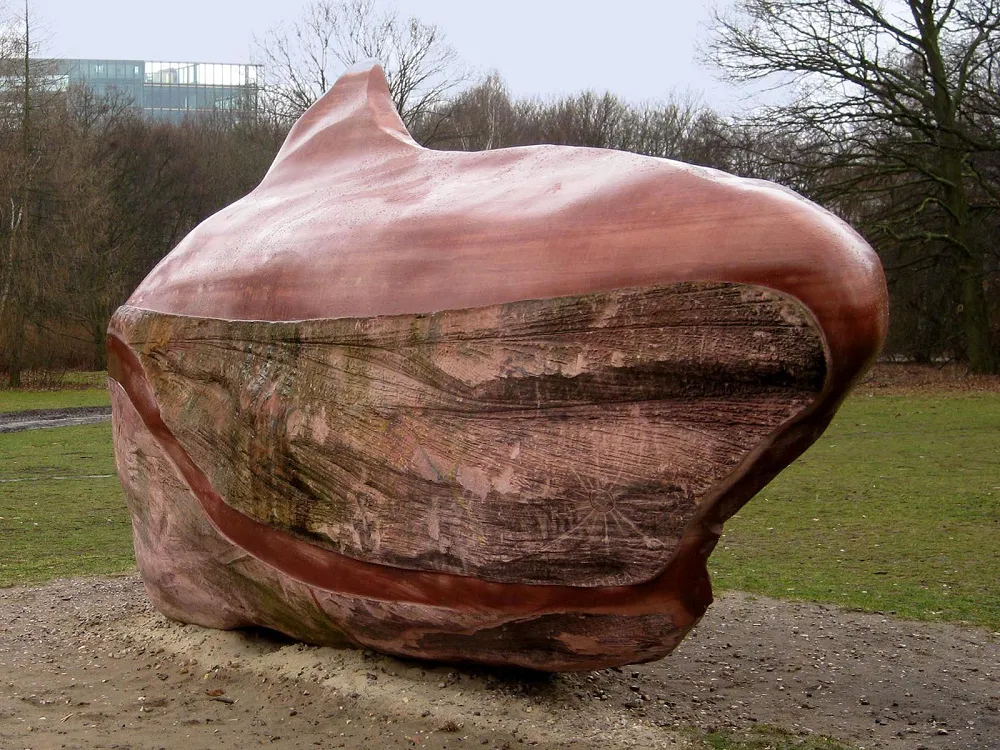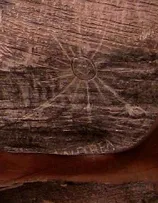In response to the evocative invitation to recreate a situation about the idea of returning home, I wanted to tell you the story you will read below.
It is inspired by a real event and based on the mythology of an indigenous Venezuelan people.
It is my entry to @theinkwell's call.
The Ink Well Weekly Fiction Prompt #4: The Way Home

Grandma Kueka
What we can say about that time is that all beings, men, trees, animals, rivers, stones, had a soul and that the God Makunaimu lived in close proximity to them. It was he who created medicinal plants, fruit trees and singing birds.
One day Makunaimu wanted to go for a walk and invited his brother Chiko and Kaponoko.
On the way they met the chief of the Macuchi tribe, Piasan Macuchi, and his beautiful daughter.
On seeing the young Kaponoko, he fell in love with her and spoke to her of his love, even though the sacred law of his tribe prevented him from consorting with a woman from outside his tribe. The girl told him to talk to her father. Piasan Macuchi was furious; they would not have his permission.
Faced with so many inconveniences, the lovers decided to elope. Makunaimu, who was a good god, decided to protect them, giving them thorns, ashes and eggs. The young man threw the thorns as they fled. Those who followed them felt them bury themselves in their feet, preventing them from running. For those who managed to follow, he threw ashes at them, clouding their path. With the eggs Kaponoko formed huge rocks and seas behind him and his beloved.
But the lovers were very tired from running away. They decided to stop and rest for a while. They sat down, leaning against each other in a tender embrace, and Makunaimu watched them from afar. The god had a thought: "As they are resting, so shall they remain.
The thoughts of the gods become deeds and so Kaponoko and his wife became huge jasper stones.
Thus they remained, always together, for years and years. At their feet came to rest a river that bathed and made the flagstones in the vicinity of the loving couple glow crimson, green, blue and black. In this environment of orchids, multicoloured birds and large trees, the first couple of the Pemón people was born.
The souls of Kaponoko and his wife cared for the harmony of nature so that their children could live sweetly. When the first couple had their children, the stone lovers began to be called Grandmother Kueca and Grandfather Kako.
Whoever told me this story let me know that in the first language the stones were called Kako and that Grandmother Kueka began to mean Great Grandmother and Kako Great Grandfather.
The truth is that Grandmother Kueka and Grandfather Kako remained in each other's arms, for centuries, for millennia, forever.
Always in each other's arms, they saw their children, the Pemon, reproduce at their feet, making a nation. They saw the shapes of the animals change, they saw Makunaimu retire to live out his old age as a god in a place far away from the sky; they saw the courses of the rivers change and they saw the strangers arrive, making their way through the thorns, the rocks and the seas that Kaponoko formed when they both fled to live their love.
No one can say how much time passed from the beginning until the day when that stranger with blond hair and blue eyes, after admiring the Jasper Gorge, stopped before the great Grandmother Kueka and was filled with a selfish love for her.
The new lover cared nothing for the beautiful stories that spoke of the beginning of time, nor for the explanations about the embrace of the ancestral lovers, nor for the need his people had for her. He only wanted to take Kueka home with him.
One day the abduction of Grandmother Kueka took place. Lovingly wrapped and hermetically fastened, she crossed the oceans in the cargo carrier of an aeroplane. Gone were the wailing of her grandchildren, the stony despair of Grandpa Keko and an unspeakable loneliness in the Gran Sabana.
To make the world understand the immense value of Grandma Kueka, the German in love placed her in a park in Berlin. There he stripped her of her dignified surface, polished and sculpted her. When it was ready, he said, shamelessly, but not untruthfully, that this magnificent, rose-coloured, semi-precious stone represented love.
And so she was admired. Meanwhile her children began to link hands to retrieve it.
Twenty years passed. In that short time a human chain was made so large that it stretched from Jasper Gorge to Berlin. Someday this story will be told. The chiefs and shamans also arrived there. Grandmother Kueka looked ill. There was a need for healing rituals. Then Grandmother Kueka was able to return home.
There was great celebration when Grandmother Kueka was once again entwined in her embrace with her beloved.
In his heaven of retired gods, Makunaimu looked out over the old earth one day.
As he looked out over the savannah he saw the everlastingness of the love he had protected.

